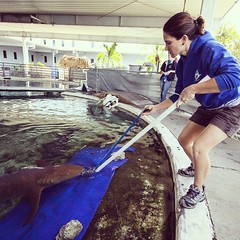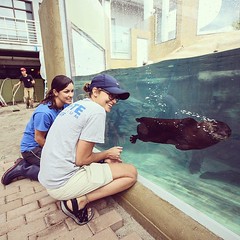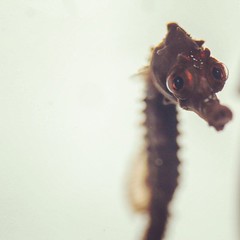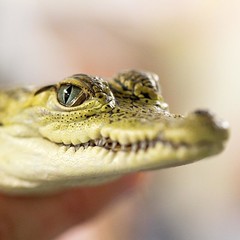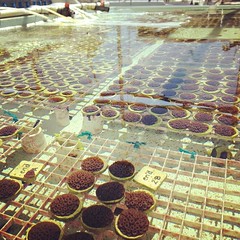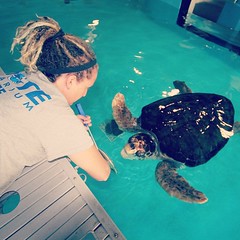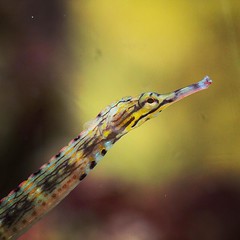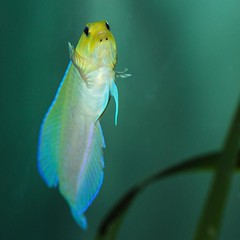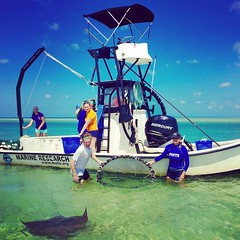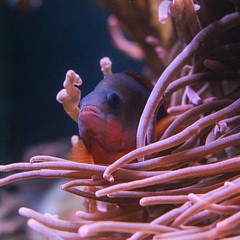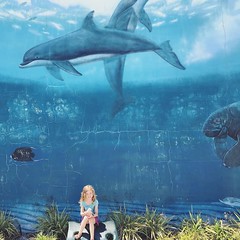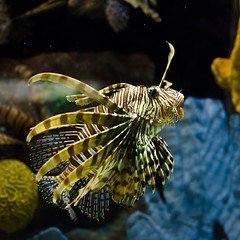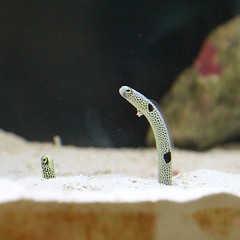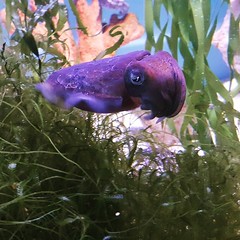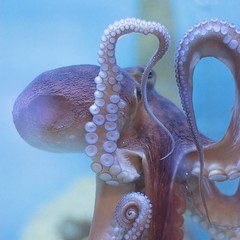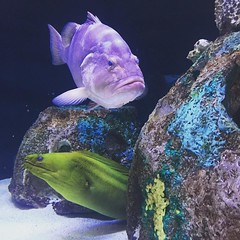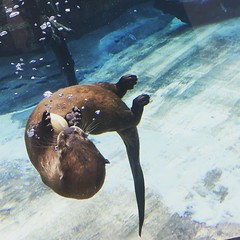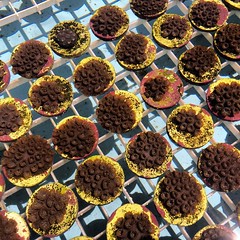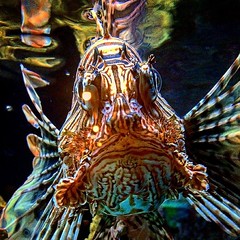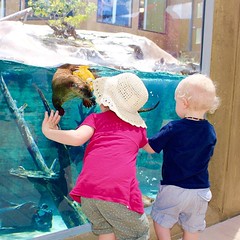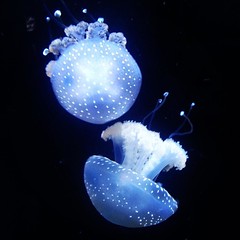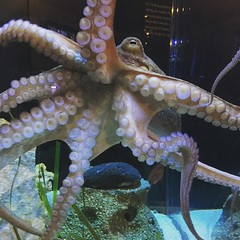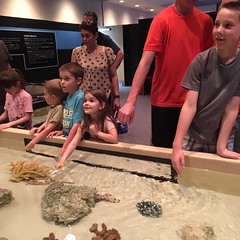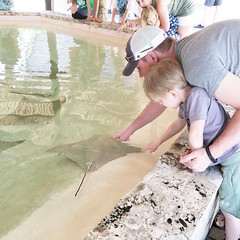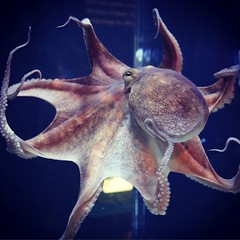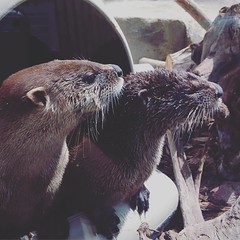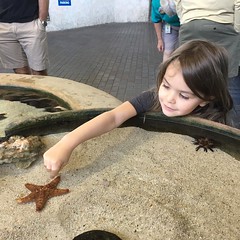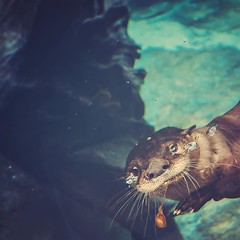1600 Ken Thompson Parkway
Sarasota, FL 34236
Ph: (941) 388-4441
Hours: 10AM - 5PM
A 501(c)3 nonprofit organization.
Alvin
Rough-toothed dolphin (Steno bredanensis)
(MML 9711-A, FB 28, GW97SB28)
| Age Class | Adult |
| Gender | Male |
| Date Stranded | December 13, 1997 |
| Location of Stranding | Port St Joe, FL |
| Date of Arrival | December 15, 1997 |
| Number of Days of Care | 101 Days |
Final Disposition
Released on 25 Mar 1998 with 9711-B
MML 9711-A-D were 4 dolphins which were part of a mass stranding of 62 animals. They were cared for near the stranding site until they could be transported to MML.
Alvin presented in good body condition with neutrophilia, elevated liver values, bilateral congestion of both lungs, tachycardia, heat necrosis of left axilla and pec; he was started on antibiotics, oral fluids. Alvin began eating and swimming within a few days. Later treated for possible nematodes and possible renal trematodes; also treated with low dose aspirin as blood thinner in response to blood clots seen in 9711-C. Case was characterized by a persistent hematuria, proteinuria (repeated cultures of urine were negative). Alvin also developed a nonregenerative anemia. Erythropoietin was successfully used to stimulate RBC production. The dolphin's hematuria/proteinuria was found to be non-treatable, non-contagious, and fully compensated for- hence this dolphin was deemed releasable by NMFS. Alvin and Blitzen were released together, having been off antibiotics for over a month with stable blood values. The two were tracked for 112 days by satellite transmitter throughout the northeastern Gulf of Mexico and were seen by a fisherman 5 months after release.
Followup: Tracked via radio and satellite tags
Lessons:
1- Stenos are a very social, schooling species showing epimeletic behavior
2- Transporting multiple dolphins in water-filled container (raft) worked well and reduced the stress level for the dolphins.
3- Erythropoietin @ 10,000U Q 2-3 days for a total of 2 doses "jump started" erythropoiesis. (increase in nRBC and immature (HFR) retics by day 3)
4- This species often decapitates fish; messy eaters.
5- Flying fish appears to be a normal food item; if unavailable try ballyhoo.
6- Release criteria needs to address conditions which are non-treatable, non-infectious.
7- Aspirin 1-2 mg/kg sid po may prevent blood clots in dolphins; watch for possible developing anemia
8- Stenos require warm water (75-80 F). Providing warm water likely aided in their recovery.
PublicationManire, C. A., H. L. Rhinehart. In press. "Use of human recombinant erythropoietin for the treatment of nonregenerative anemia in the rough-toothed dolphin, Steno bredanensis." Journal of Zoo and Wildlife Medicine.
Presentations
Manire, C. A., and H. L. Rhinehart. "The use of human recombinant erythropoietin for the treatment of nonregenerative anemia in the rough-toothed dolphin, Steno bredanensis." Oral presentation at the International Association for Aquatic Animal Medicine 30th annual conference, Boston, MA. 1999.
Rhinehart, H. L., C. A. Manire, J. D. Buck, P. Cunningham-Smith, and D. R. Smith. "Observations and rehabilitation of rough-toothed dolphins, Steno bredanensis, treated at Mote Marine Laboratory from two separate stranding events." Poster presentation at the 13th biennial Conference on the Biology of Marine Mammals, Maui, HI. 1999.
Wells, R. S., C. A. Manire, H. L. Rhinehart, D. R. Smith, A. Westgate, F. Townsend, T. Rowles, A Hohn, and L. Hansen. "Ranging patterns of rehabilitated rough-toothed dolphins, Steno bredanensis, released in the northeastern Gulf of Mexico." Oral presentation at the 13th Biennial Conference on the Biology of Marine Mammals, Maui, HI. 1999.
